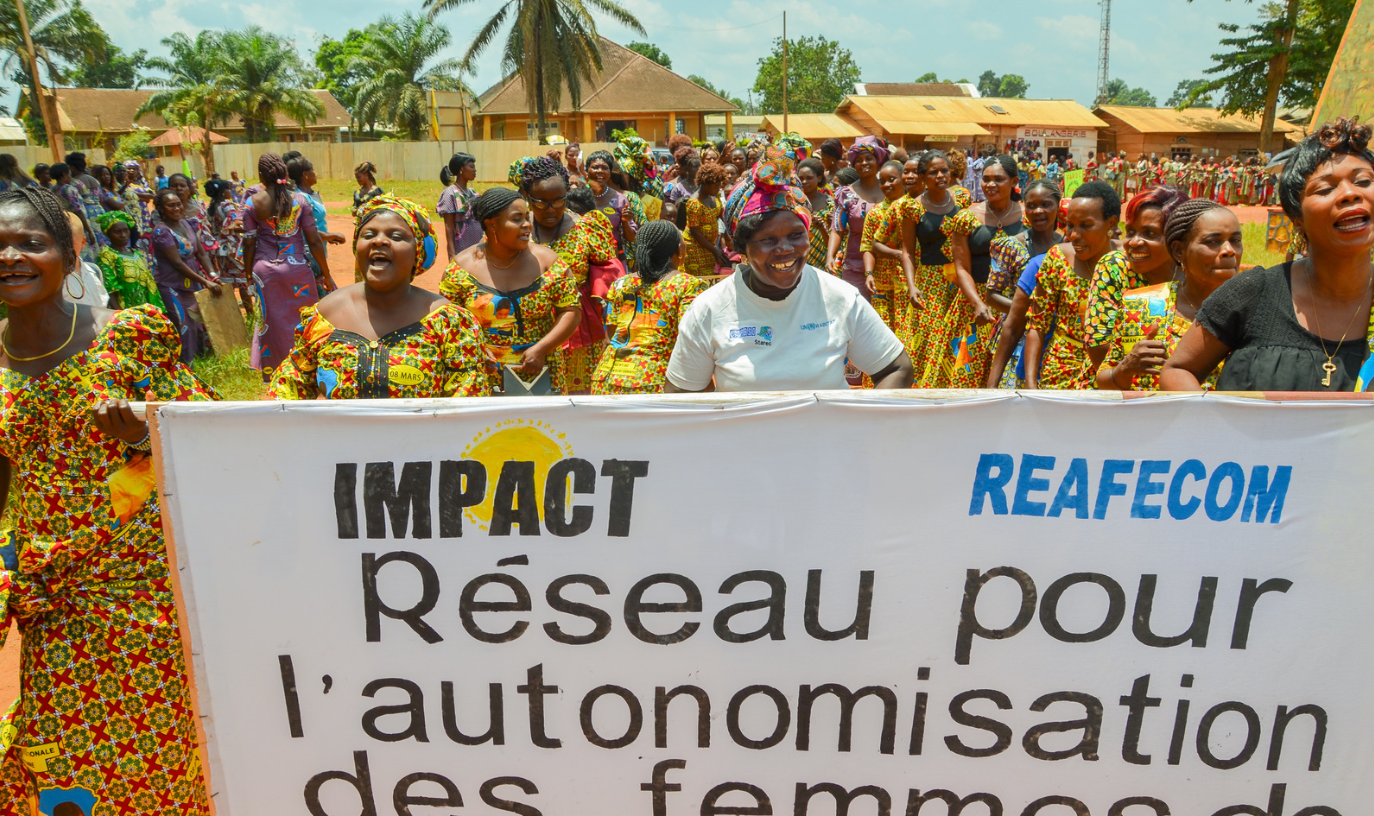Artisanal mining often takes place in areas where security and human rights are at risk. Women make up 30 percent of the work force, but face many challenges, especially related to their safety and security.
While there is significant focus on responsible sourcing and gender equality in mining communities, women need to be secure in their community, at the mine site, and at home.
Aspects of Women’s Security
Physical security focuses on safety and freedom from violence and ensures women have support services available, an important aspect both at home and in the community. Women can face risks from the presence of armed groups and security forces, or due to the isolated location of mine sites in remote areas.
Economic security not only includes an increase in income but control over that income and its strategic use to ensure long-term improvement in livelihoods. Such strategies can include joining a community savings group, such as the AFECCOR project, or investing in alternative livelihoods.
Land security determines who has access to and who benefits from natural resources, while food security ensures whether women and their dependents have consistent access to adequate, safe, and nutritious food. Access to land or food can be exacerbated by ethnic and inter-community tensions, as well as the migration of populations fleeing armed conflict from other regions.
Importantly, artisanal mining communities are often most dominated by patriarchal ideals prompting decisions to be made by men, for their benefit. This exclude women from being part of the solution to conflicts and disputes relevant to them and their families.
Women Miners Become Peacebuilders
In 2018, through the Women of Peace project, IMPACT supported the members of the Network for the Empowerment of Women in Mining Communities (known by its French acronym REAFECOM) to address their safety and security. REAFECOM is the first association of women artisanal miners in DRC’s Ituri Province and represents women’s interest as artisanal miners, with the goal of promoting women’s rights in their communities. They defined security as a main priority.
IMPACT supported REAFECOM to set up 14 community-based Peace Hubs, located at artisanal gold mining communities and mine sites in Mambasa territory. REAFECOM’s members who led the Peace Hubs were trained in conflict prevention and peaceful resolution of conflicts, with women gaining new skills in mediation and negotiation.
Community members could receive voluntary mediation services through the Peace Hubs. Sensitization and community-wide dialogues helped to both increase the popularity of the Peace Hubs, as well as recognize their relevance.
REAFECOM saw the importance of reaching out to customary authorities to see behaviour change within the communities. The customary authorities gained awareness on human rights and social justice issues, and their wives and daughters became members of REAFECOM. Similar outreach was done with the local mining cooperative and the mine site administrators—leading to mediation requests from community and mining leaders.
By the end of 2021, 63 conflicts had been peacefully resolved through 189 mediations sessions. The most frequent mediation issues were related to psychological, physical, and economic violence affecting women within households and families, or to land and interpersonal disputes.
Women Miners Access Support Services
In parallel to become peacebuilders in their communities, the women of REAFECOM sought to decrease the levels of violence and improve access to support services for survivors.
In partnership with local organizations, Solidarité Féminine pour la Paix Intégrale (SOFEPADI) and Club des Volontaires pour l’Appui aux Peuples Autochtones (CVAP), REAFECOM began mapping the mine sites and communities to analyze the security situation for women and girls and to identify potential risks—such as poor lighting, isolated walks, or presence of armed forces.
The mapping identified high risk areas for women and girls, as well as support services available. REAFECOM was able to put in place a rapid response system using mobile phones, and in collaboration with SOFEPADI, begin accompanying survivors of sexual violence to access services.
Over two years, REAFECOM accompanied 70 survivors of rape to access health care, psychological support, and legal services. 35 of the cases were minors—all the alleged perpetrators were family members or close community members.
A Scalable Model for Women’s Security
While there has been significant effort to incorporate women into leadership and peacebuilding efforts at an international level, such as with UN Security Resolution 1325 and resolutions on Women, Peace and Security—translating this to local artisanal mining communities continues to be a slow process.
The Women of Peace project amplifies the milestones achieved internationally and supports women in artisanal mining communities to meaningfully raise their concerns, propose solutions, and contribute to the peace and security dialogue moving forward.
Photo by Zuzia Danielski: Members of REAFECOM participate in International Women’s Day celebrations in Mambasa, Democratic Republic of Congo in 2019.
Interested in learning more?
Strengthened Women’s Mining Associations Improve Gender Equality in DRC, Uganda, Zimbabwe
Meet Josephine and Zawadi: Women Artisanal Miners in Democratic Republic of Congo
New Research on Congo’s Artisanal Mining Sector: Policies Need to Include Women
Meet REAFECOM: Congo’s Women Artisanal Gold Miners Together in Solidarity

